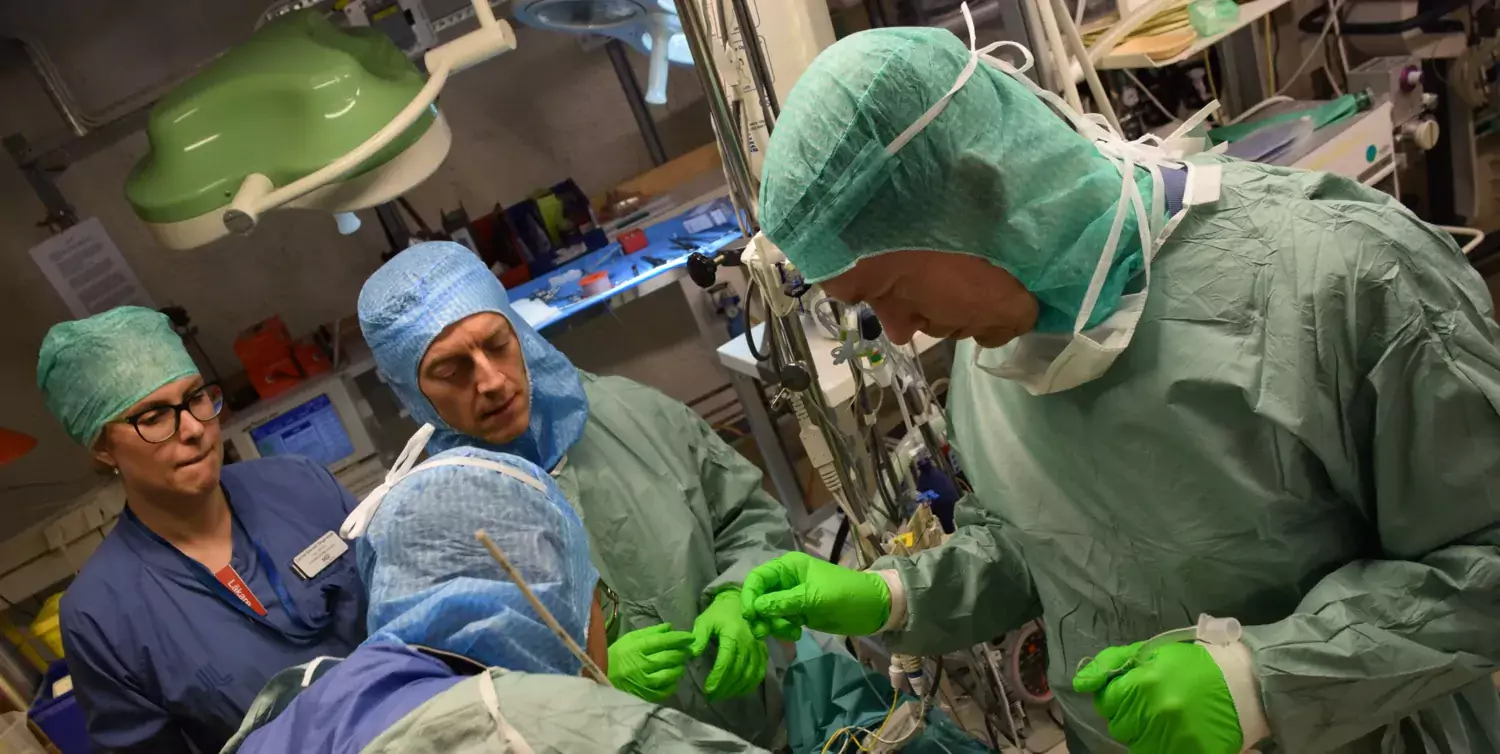Courses offered by the Centre for Trauma Research
The Centre for Trauma Research is organising a graduate course in Trauma Science for PhD students at Karolinska University Hospital in Solna. Dates for the fall semester 2025 are still to be determined.

Purpose
Trauma is a major global public health concern and is the largest single factor of death and severe disability for people younger than 45 years The incidence of trauma continues to rise. The World Health Organization estimates that by 2025 trauma will become the leading cause of death worldwide due to ageing in Western populations, increasing road use in developing countries and conflicts.
This course is organized for PhD students who are interested in clinical, translational and basic trauma research. It is held at Karolinska University Hospital, home to one of the largest trauma centers in the nation, and lectures will be held by leading clinicians and academics in trauma. Participants of all nations and educational centers are welcome to apply. The course will be held in English.
Intended learning outcomes
At the end of the course the participants should have a good overview of, and will be able to show good understanding of:
- Pathophysiological mechanisms in trauma
- Principles of diagnosis and treatment in trauma
- Trauma research methodology
- Results in recent trauma trials
- knowledge gaps in trauma

Course content
The course consists of eight trauma modules.
Introduction to Trauma science
This module will provide knowledge to consider and manage trauma as a disease including trauma systems and the different aspects on how to deliver a specialist trauma care, from prehospital care through the entire patient's care pathway.
Haemorrhage and response to injury
This module will provide knowledge on diagnosis and management of shock syndrome and the deranged physiology underlying the onset of acute traumatic coagulopathy.
Chest and abdominal trauma
This module will focus on the mechanism and pathophysiology of chest and abdominal injuries. It will provide critical knowledge of common patterns for torso injuries, as well as the tools to recognise and initiate treatments for the most common and life threatening injuries.
Brain and spinal cord injury
This module will cover the contemporary pathophysiology of brain and spinal cord injury, teaching you to critically evaluate the principles of diagnosis and treatment for patients with traumatic brain and spinal cord injuries.
Critical care and trauma
This module will provide a solid background in the rapidly evolving area of critical care including shock therapy, ventilator management, organ dysfunctions, and infectious disease.
Extremity and vascular trauma
This module will provide a comprehensive science overview of management of musculoskeletal and extremities vascular trauma. There will be a specific focus on the science of fracture and vessel healing.
Burns and wound healing
This module will provide deepen and broaden knowledge on burn and wound healing in line with contemporary literature.
Military and humanitarian trauma
This module will provide knowledge of military and civilian austere trauma. The module will cover the science of triage, mass casualty management and surge capacity, ballistics, chemical and biological trauma.
Forms
Daily classroom lectures by invited clinicians and researchers within the field of trauma. Interactive seminars, problem-solving in groups, and oral presentations will be used. Time will be allocated for students to prepare a group presentation of a selected key article of trauma science. The presentation will be on the last day of the course and constitutes the examination.
Compulsory elements
All lectures/seminars are compulsory and in case of absence, the session can be compensated by a short-written report using the literature after agreement with the course directors.
Examination
The examination consists of a digital, individual MCQ-examination.
Course literature/teaching materials
The lecturers and course organizer will provide a list and PDF-copies of recommended scientific articles published in scientific journals as well as recommended weblinks.
Application
Applications for doctoral courses are made directly in the course catalogue and without creating an applicant profile.
Karolinska Institutet has one course catalogue per semester, with an application period during approximately three weeks. Application is made for the next semester. The course catalogue for the autumn semester of 2025, will be open for application during the period 15 April to 6 May 2025.
